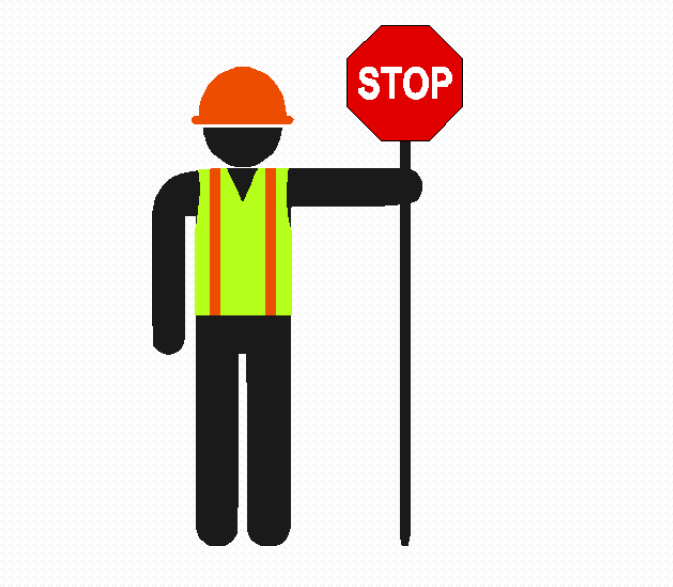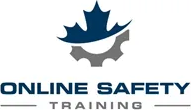Mandatory Training of Traffic Control Persons

Ensuring Safety on Canadian Roads: The Mandatory Training of Traffic Control Persons for the Upcoming Road Construction Season:
With the arrival of the road construction season in Canada, the importance of safety in work zones cannot be overemphasized. Road construction sites are dynamic and often hazardous environments where multiple activities are carried out simultaneously. To mitigate the risks associated with these sites and protect the safety of workers, motorists, and pedestrians, traffic control person (TCP) training has been made mandatory in Canada. In this article, we will explore why TCP training is essential for the upcoming road construction season, focusing on the benefits, regulations, and the impact on safety.
The Significance of Traffic Control Persons
Traffic control persons, commonly known as flagpersons, are the unsung heroes of road construction sites. They play a critical role in directing traffic, ensuring the safe movement of vehicles, and safeguarding the lives of both workers and the general public. Their responsibilities include:
- Guiding Traffic: TCPs use a combination of hand signals, flags, and signs to direct motorists safely through construction zones, detours, and road closures.
- Protecting Workers: TCPs are responsible for creating a buffer zone between construction activities and passing traffic, reducing the risk of accidents involving construction workers.
- Maintaining Traffic Flow: TCPs work to minimize traffic disruptions and congestion by efficiently managing the flow of vehicles through construction areas.
- Communicating with Workers: They coordinate with construction crews to ensure that workers can perform their tasks safely and without interruption.
Mandatory TCP Training in Canada
To ensure the effectiveness of TCPs in maintaining safety at construction sites, Canada has established rigorous training and certification requirements. These requirements are outlined in the following key regulations:
- Ontario Regulation 213/91 – Construction Projects: In Ontario, which is one of Canada’s most populous provinces, the Construction Projects Regulation mandates that TCPs must undergo training and be certified before they can perform flagging duties on construction sites. This regulation sets the standard for TCP training across the province.
- Provincial and Territorial Regulations: While Ontario has specific regulations, other provinces and territories in Canada have their own legislation and standards governing TCP training and certification. These regulations may vary in their specific requirements but all emphasize the importance of proper training.
Why Mandatory Training of Traffic Control Persons
- Safety First: The primary reason TCP training is mandatory is to prioritize safety. Road construction sites are high-risk areas where accidents can have severe consequences. By ensuring that TCPs are trained and certified, authorities minimize the potential for accidents, injuries, and fatalities.
- Effective Traffic Management: Properly trained TCPs are better equipped to manage traffic flow efficiently. They have the knowledge and skills to make quick decisions, maintain order, and prevent traffic bottlenecks or confusion that could lead to accidents.
- Consistency and Standards: Mandatory training establishes consistent standards and practices for TCPs across the country. This uniformity ensures that all TCPs are held to the same high standards, regardless of their location.
- Compliance with Regulations: Mandatory training ensures that TCPs and their employers comply with provincial/territorial regulations. Non-compliance can result in fines, penalties, or the suspension of construction projects.
Benefits of Mandatory Training of Traffic Control Persons
- Enhanced Safety: The foremost benefit of mandatory TCP training is the enhancement of safety at construction sites. Trained TCPs are better equipped to manage traffic, reducing the risk of accidents and injuries.
- Reduced Liabilities: For construction companies and government agencies, ensuring that TCPs are properly trained helps reduce liabilities. In the event of accidents, having certified TCPs demonstrates due diligence and commitment to safety.
- Improved Traffic Flow: Trained TCPs are more efficient in managing traffic flow, which minimizes disruptions and congestion in construction zones. This results in fewer delays and frustrations for motorists.
- Professional Development: Mandatory training provides opportunities for TCPs to develop their skills and knowledge. This professional development can lead to better job prospects and higher wages within the industry.
The Impact on Road Safety
- Reduced Accidents: Mandatory TCP training has led to a reduction in accidents in construction zones. Trained flagpersons are more effective at preventing collisions between vehicles and construction equipment.
- Protection for Workers: By maintaining a safe distance between passing traffic and construction activities, TCPs protect workers from potential harm. This protection is critical, given the risks associated with construction work.
- Safer Roads for Everyone: Road construction zones can be challenging for motorists to navigate. Trained TCPs ensure that traffic flows smoothly, reducing the risk of accidents and frustration for drivers.
Challenges and Considerations
While Mandatory Training of Traffic Control Persons is a significant step towards enhancing safety in construction zones, there are challenges and considerations to be aware of:
- Cost and Time: Training and certification programs require an investment of both time and money. Employers and TCPs must allocate resources for training, which can be a barrier for smaller construction companies.
- Consistency: Ensuring that training programs are consistent in quality and content across all provinces and territories is a challenge. Harmonizing standards and practices can be difficult but is essential for uniform safety.
- Compliance and Enforcement: Enforcing mandatory TCP training can be challenging, especially in remote or smaller communities. It requires collaboration between government agencies, construction companies, and TCPs.
Mandatory traffic control person training is a crucial element of ensuring safety on Canadian roads during the upcoming road construction season. By prioritizing safety through training and certification, authorities aim to reduce accidents, protect workers, and maintain efficient traffic flow in construction zones. The benefits of mandatory training are evident in enhanced road safety, reduced liabilities, and improved working conditions for TCPs. While challenges exist, the commitment to safety through proper training remains a top priority for Canada’s road construction industry, ensuring safer roads for everyone involved.
Click here for online traffic control person training.
Click here for Government of Canada information on Traffic Control.
Categories
- Aerial Lift
- ATV Training
- Bear Awareness
- Chainsaw Training
- Confined Space
- Defensive Driving
- Forklift Training
- Lockout Tagout
- Online Safety Training
- Overhead Crane
- Pipeline Construction Safety Training
- Propane Handling
- Safety Training Benefits
- Scissor Lift
- Skid Steer Training
- Space Awareness
- TDG
- Telehandler Forklift
- Traffic Control
- Train the Trainer course
- Training Course
- Uncategorized
- WHMIS
- Workplace Harassment and Violence Preventiont
